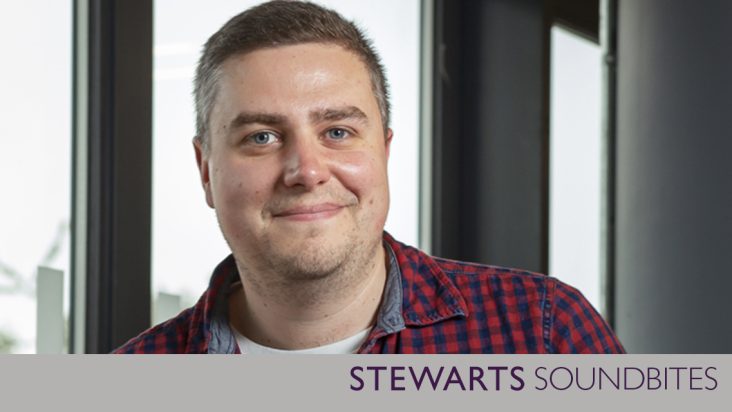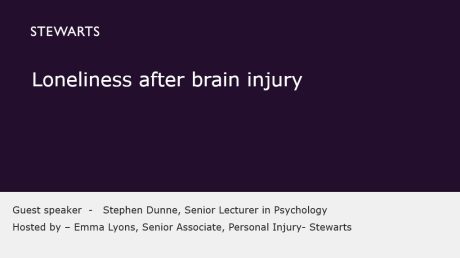Dr Stephen Dunne, a researcher and senior lecturer in psychology discussed how people define and experience loneliness after brain injury.
Dr Dunne has been conducting an impressive research project considering how brain injury survivors have experienced life in lockdown and how this compares to non-brain injured people’s experiences. The pandemic has caused many to have their first real experience of prolonged social isolation. The lifting of restrictions has given hope to and served as a release for many, marking the end to isolation and loneliness. However, it appears that for those living with a brain injury, these experiences may well continue to affect their lives just as they did before the pandemic.
Dr Dunne and Emma discussed the preliminary findings of the research project and considered the difference between isolation and loneliness; how this is defined by various groups; and how loneliness may impact upon those caring for brain injury survivors.
Watch the recording here

About the guest speaker
Stephen Dunne, Senior Lecturer in Psychology
 Stephen started his PhD in Cognitive Neuroscience at Durham in 2010, completing this in November 2014. Stephen’s PhD explored the use of monetary rewards on eye movements in neuro-typical human participants extending previously held knowledge regarding the effectiveness of rewards as a tool for behaviour change in neuro-typical populations and the application of reward-based training for sufferers of visual field deficits such as hemianopia.
Stephen started his PhD in Cognitive Neuroscience at Durham in 2010, completing this in November 2014. Stephen’s PhD explored the use of monetary rewards on eye movements in neuro-typical human participants extending previously held knowledge regarding the effectiveness of rewards as a tool for behaviour change in neuro-typical populations and the application of reward-based training for sufferers of visual field deficits such as hemianopia.
From 2014 to 2018, Stephen worked at Durham University as a postdoctoral researcher developing, disseminating and conducting research using an app to help compensate for visual loss associated with stroke.
His involvement with the development and implementation of rehabilitation paradigms for stroke survivors with visual loss has led him to question how factors such as motivation, competition and goal-setting can be manipulated to improve patient outcome. At best these psycho-social factors in rehabilitation are poorly evidenced and at worst, non-existent. Stephen’s research aims to understand the interaction between concepts such as competition, collaboration, motivation, reward and goal-setting in order to apply these findings to patient populations.
Dr Stephen Dunne twitter – @DrSDunne
Previous Stewarts Soundbites episodes
A series of bitesize webcasts designed to deliver concise and interesting updates, conversations and presentations on a range of topics, brought to you by our specialist lawyers and featuring some special guest speakers – Find out more.

You can find further information regarding our expertise, experience and team on our Personal Injury pages.
If you require assistance from our team, please contact us.
Subscribe – In order to receive our news straight to your inbox, subscribe here. Our newsletters are sent no more than once a month.





